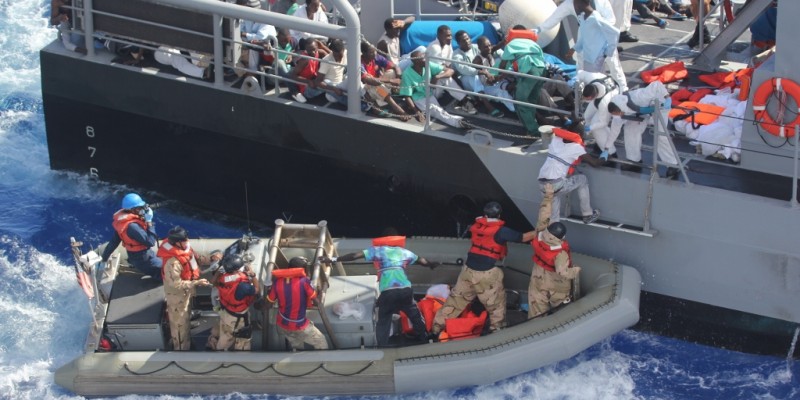1. Changing routes /1
“Our research suggests that there is a relationship between the decisions made in Europe and deaths at sea,” Heaven Crawley and Nando Sigona argue on The Conversation. How this European policy is driving refugees to more dangerous routes across the Mediterranean, without providing protection for those who are fleeing war and need a safe journey.
2. Changing routes 2
Eight routes to Europe: how migrants’ routes have been changing since the EU-Turkey agreement. El Diario envisages the roads that could be opening if the crossing between Turkey and Greece became more difficult. From the reopening of the Albanese route, through the far north route in Russia, to the crossing between Lebanon and Cyprus. Eight animated maps.
3. Students for refugees
A students guide of how to help refugees and to improve the quality of knowledge about migration. Small but useful things to do right now to get started. How to start a fundraising? How to raise awareness with your university friends? The Student Action for Refugees’ project in Great Britain.
4. A global talkshow about immigration
Presented by the “philosophy star” Michael Sandel, the BBC radio show reunited 60 contributors from 30 countries. An international conversation in a connected “digital space” to overcome demagogy and stereotypes about migrants and refugees.
5. Whatsapp from Syria
“Hi daddy, how are you? Bring me a white dress as that of Lana.“ In a video published on Time, a photographer and a film editor gathered Syrian refugees’ audio messages exchanged with those who stayed in their home country. Words and stories that show an extraordinary normality.
6. An uncomfortable debate on smugglers
Are smugglers parasites who take advantage of desperate people or service providers for people who want to leave their country? On Open Democracy, an uncomfortable discussion between experts.
7. Out of Greece
Unhcr, Doctors without borders, the International Rescue Comittee (IRC), the Norwegian Refugee Council and Save the Children. A lot of NGOs are giving up their work in Greek camp to protest the living conditions of asylum seekers.
8. Why landings in Lesvos are stalling?
Since the last few days, the arrival flow on Greek beaches is decreasing: from thousands to hundreds, even tens, in just 100 days. The Washington Post wonders if it is a structural change or a passing phenomenon. Too much problems, too much money to join Europe, too much danger of being removed from Europe later. The travel is becoming a real nightmare for refugees.
9. How to operate the agreement between EU and Turkey
What are the key issues that will determine the success of the EU-Turkey deal? Politico.eu analysed five of them: security, migrant flows, the visa liberalization, the Greece’s “Herculean” task and the legal challenges.
10. Unprepared Hungary
The failure of the identification camps for asylum seekers in Hungary. The results of a study by two Hungarian NGOs show the unpreparedness of the country, despite being the second in Europe – after Germany – when it comes to applications for asylum, this past year. And even though in the Hungarian camps there are refugees from Syria, Afghanistan and Iraq, nationalities that have a very high acceptance rate of asylum applications (from 98 to 60%).









